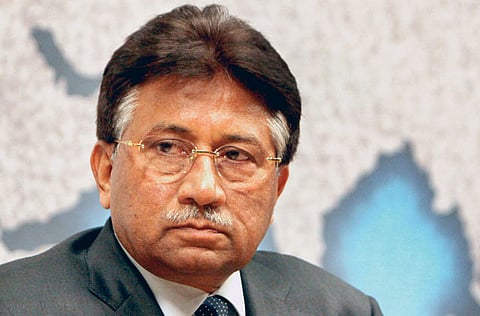Poverty is Pakistan's real challenge
Political dialogue is meaningless without governance that uplifts the downtrodden

A conference of Pakistan's main political parties summoned by the ruling Pakistan People's Party (PPP) on January 25 to discuss the escalating militant violence in the southern port city of Karachi, broadly appears to be an exercise in futility.
The problem is indeed very real. Targeted killings spanning over several days, earlier this month, in Karachi, have badly exposed the fragile security condition in the city. To most Pakistanis, such killings have revealed the way law and order across large parts of the country remains more than just potentially volatile.
There are several factors that have contributed to the volatility. Politics is indeed a key element in dealing with this challenge. Some of Pakistan's main political parties have terrible reputations when it comes to the business of resorting to violence to settle scores.
During successive elections, government after government has issued orders banning the public display of weapons, but such orders have tragically come to naught. It is therefore absolutely vital that a political consensus is evolved to seek agreement from all the key players to join a new national cause in this area.
There are other major impediments to progress. To make matters worse, the quality of governance in Pakistan has only declined in the past decade, notably during the rule of former president General Pervez Musharraf.
In seeking to create a popular base for supporting his own brand of politics, Musharraf oversaw the systematic destruction of government under his so-called devolution plan. This involved a strategy to dismantle government-appointed administrators across Pakistan and to replace them with elected representatives. More corruption has subsequently become the norm in a country where it is already a huge challenge.
However, more serious elements that have contributed to the breakdown are tied to a list of factors that have been badly neglected for long. There is widespread poverty in Pakistan. Almost one-third of Pakistan's population or approximately 60 million of its people live below the poverty line.
Karachi's 18 million people include about one-third who live in want. While one part of Karachi's upper class neighbourhoods such as Defence Housing Authority have uninterrupted power supply, thanks to the generators powering the homes of the rich elite, long periods of darkness prevail elsewhere in the homes of Pakistan's poverty stricken population.
To make matters worse, while opportunities abundantly knock on the doors of the rich in Karachi, the word ‘opportunity' does not figure in the lives of the poorest of the poor in the city.
In this background, the upcoming dialogue will probably remain inconsequential to the lives of those in want.
Tenuous stability
It is possible that discussions among Pakistan's elite politicians may bring conditions under control for now. But any sense of stability will be tenuous and temporary at best. Soon enough, instability will become prevalent yet again as the next crisis triggers a fresh breakdown.
To tackle the situation conclusively, it is absolutely vital that Pakistan's rulers begin tackling the real challenges facing their country with a view to addressing the overall problems. Such a change cannot begin with just a dialogue between members of the main political parties. Instead, a meaningful change requires steps that begin to make changes to the lives of ordinary Pakistanis.
If ignored, the circumstances prevailing in poverty-stricken neighbourhoods will only worsen. The nature of this challenge is so explosive that it needs to be tackled on an urgent basis.
It is probably too late in the day to call off Tuesday's gathering. But it is never too late to set the pace for a more meaningful discussion on the relationship between the government and the people of Pakistan. If ruling politicians indeed rise to the occasion, they will only be doing themselves a huge favour.
Recent events in Tunisia where a well-entrenched dictator was abruptly thrown out is an eye-opener. It takes just a visibly insignificant set of events to come together and trigger a bigger set of crises. That is exactly what happened in Tunisia.
Given that living conditions for a large chunk of Pakistan's population remain desperate, there is little room for complacency.
Farhan Bokhari is a Pakistan-based commentator who writes on political and economic matters.


